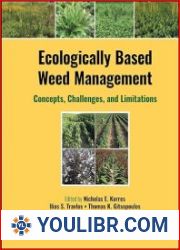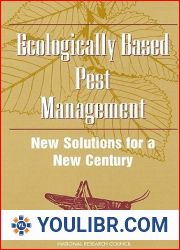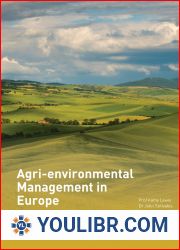
BOOKS - Ecologically Based Weed Management Concepts, Challenges, and Limitations

Ecologically Based Weed Management Concepts, Challenges, and Limitations
Author: Nicholas E. Korres, Ilias S. Travlos, Thomas K. Gitsopoulos
Year: 2023
Format: EPUB
File size: 64,4 МБ
Language: ENG

Year: 2023
Format: EPUB
File size: 64,4 МБ
Language: ENG

Ecologically Based Weed Management Concepts Challenges and Limitations The book "Ecologically Based Weed Management Concepts Challenges and Limitations" presents a comprehensive overview of the challenges and limitations of ecologically based weed management concepts, highlighting the need for a more holistic approach to managing weeds that takes into account the complex interactions between weeds, their environments, and human activities. The author argues that current methods of weed management are often based on a simplistic understanding of ecology and fail to consider the broader context of ecosystems, leading to unintended consequences and negative impacts on the environment. The book begins by discussing the historical development of weed management practices, from early agricultural practices to modern-day chemical-based methods. It then delves into the principles of ecologically based weed management, including the importance of understanding the ecological role of weeds, the use of natural predators and competitors, and the need for adaptive management strategies. However, the author also highlights the limitations of these approaches, including the difficulty of controlling invasive species, the potential for unintended consequences, and the need for ongoing research and monitoring. One of the main challenges of ecologically based weed management is the complexity of weed ecosystems, which can be influenced by a wide range of factors, including climate change, land use changes, and human activities. The book explores how these factors can interact with weed management practices, leading to unexpected outcomes and the potential for negative impacts on native species and ecosystems.
Экологически обоснованные концепции борьбы с сорняками Проблемы и ограничения Книга «Экологически обоснованные концепции борьбы с сорняками Проблемы и ограничения» представляет всесторонний обзор проблем и ограничений экологически обоснованных концепций борьбы с сорняками, подчеркивая необходимость более целостного подхода к борьбе с сорняками, который учитывает сложные взаимодействия между сорняками, их окружающая среда и деятельность человека. Автор утверждает, что современные методы борьбы с сорняками часто основаны на упрощенном понимании экологии и не учитывают более широкий контекст экосистем, что приводит к непреднамеренным последствиям и негативному воздействию на окружающую среду. Книга начинается с обсуждения исторического развития практики борьбы с сорняками, от ранних сельскохозяйственных практик до современных методов, основанных на химических веществах. Затем он углубляется в принципы экологически обоснованной борьбы с сорняками, включая важность понимания экологической роли сорняков, использование естественных хищников и конкурентов, а также необходимость адаптивных стратегий управления. Тем не менее, автор также подчеркивает ограничения этих подходов, включая сложность контроля инвазивных видов, возможность непреднамеренных последствий и необходимость постоянных исследований и мониторинга. Одной из основных проблем экологически обоснованного управления сорняками является сложность экосистем сорняков, на которые может влиять широкий спектр факторов, включая изменение климата, изменения в землепользовании и деятельность человека. В книге рассматривается, как эти факторы могут взаимодействовать с практикой борьбы с сорняками, что приводит к неожиданным результатам и потенциальному негативному воздействию на местные виды и экосистемы.
''
















































